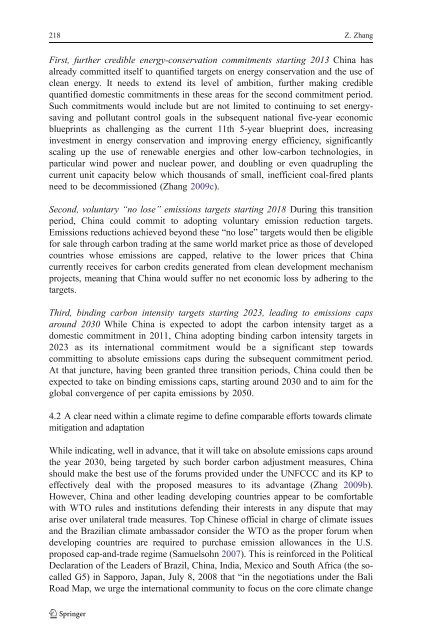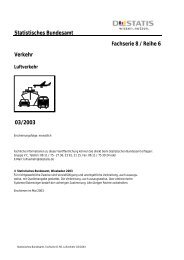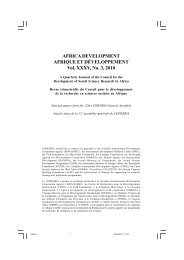The international economics of resources and resource ... - Index of
The international economics of resources and resource ... - Index of
The international economics of resources and resource ... - Index of
Create successful ePaper yourself
Turn your PDF publications into a flip-book with our unique Google optimized e-Paper software.
218 Z. Zhang<br />
First, further credible energy-conservation commitments starting 2013 China has<br />
already committed itself to quantified targets on energy conservation <strong>and</strong> the use <strong>of</strong><br />
clean energy. It needs to extend its level <strong>of</strong> ambition, further making credible<br />
quantified domestic commitments in these areas for the second commitment period.<br />
Such commitments would include but are not limited to continuing to set energysaving<br />
<strong>and</strong> pollutant control goals in the subsequent national five-year economic<br />
blueprints as challenging as the current 11th 5-year blueprint does, increasing<br />
investment in energy conservation <strong>and</strong> improving energy efficiency, significantly<br />
scaling up the use <strong>of</strong> renewable energies <strong>and</strong> other low-carbon technologies, in<br />
particular wind power <strong>and</strong> nuclear power, <strong>and</strong> doubling or even quadrupling the<br />
current unit capacity below which thous<strong>and</strong>s <strong>of</strong> small, inefficient coal-fired plants<br />
need to be decommissioned (Zhang 2009c).<br />
Second, voluntary “no lose” emissions targets starting 2018 During this transition<br />
period, China could commit to adopting voluntary emission reduction targets.<br />
Emissions reductions achieved beyond these “no lose” targets would then be eligible<br />
for sale through carbon trading at the same world market price as those <strong>of</strong> developed<br />
countries whose emissions are capped, relative to the lower prices that China<br />
currently receives for carbon credits generated from clean development mechanism<br />
projects, meaning that China would suffer no net economic loss by adhering to the<br />
targets.<br />
Third, binding carbon intensity targets starting 2023, leading to emissions caps<br />
around 2030 While China is expected to adopt the carbon intensity target as a<br />
domestic commitment in 2011, China adopting binding carbon intensity targets in<br />
2023 as its <strong>international</strong> commitment would be a significant step towards<br />
committing to absolute emissions caps during the subsequent commitment period.<br />
At that juncture, having been granted three transition periods, China could then be<br />
expected to take on binding emissions caps, starting around 2030 <strong>and</strong> to aim for the<br />
global convergence <strong>of</strong> per capita emissions by 2050.<br />
4.2 A clear need within a climate regime to define comparable efforts towards climate<br />
mitigation <strong>and</strong> adaptation<br />
While indicating, well in advance, that it will take on absolute emissions caps around<br />
the year 2030, being targeted by such border carbon adjustment measures, China<br />
should make the best use <strong>of</strong> the forums provided under the UNFCCC <strong>and</strong> its KP to<br />
effectively deal with the proposed measures to its advantage (Zhang 2009b).<br />
However, China <strong>and</strong> other leading developing countries appear to be comfortable<br />
with WTO rules <strong>and</strong> institutions defending their interests in any dispute that may<br />
arise over unilateral trade measures. Top Chinese <strong>of</strong>ficial in charge <strong>of</strong> climate issues<br />
<strong>and</strong> the Brazilian climate ambassador consider the WTO as the proper forum when<br />
developing countries are required to purchase emission allowances in the U.S.<br />
proposed cap-<strong>and</strong>-trade regime (Samuelsohn 2007). This is reinforced in the Political<br />
Declaration <strong>of</strong> the Leaders <strong>of</strong> Brazil, China, India, Mexico <strong>and</strong> South Africa (the socalled<br />
G5) in Sapporo, Japan, July 8, 2008 that “in the negotiations under the Bali<br />
Road Map, we urge the <strong>international</strong> community to focus on the core climate change








